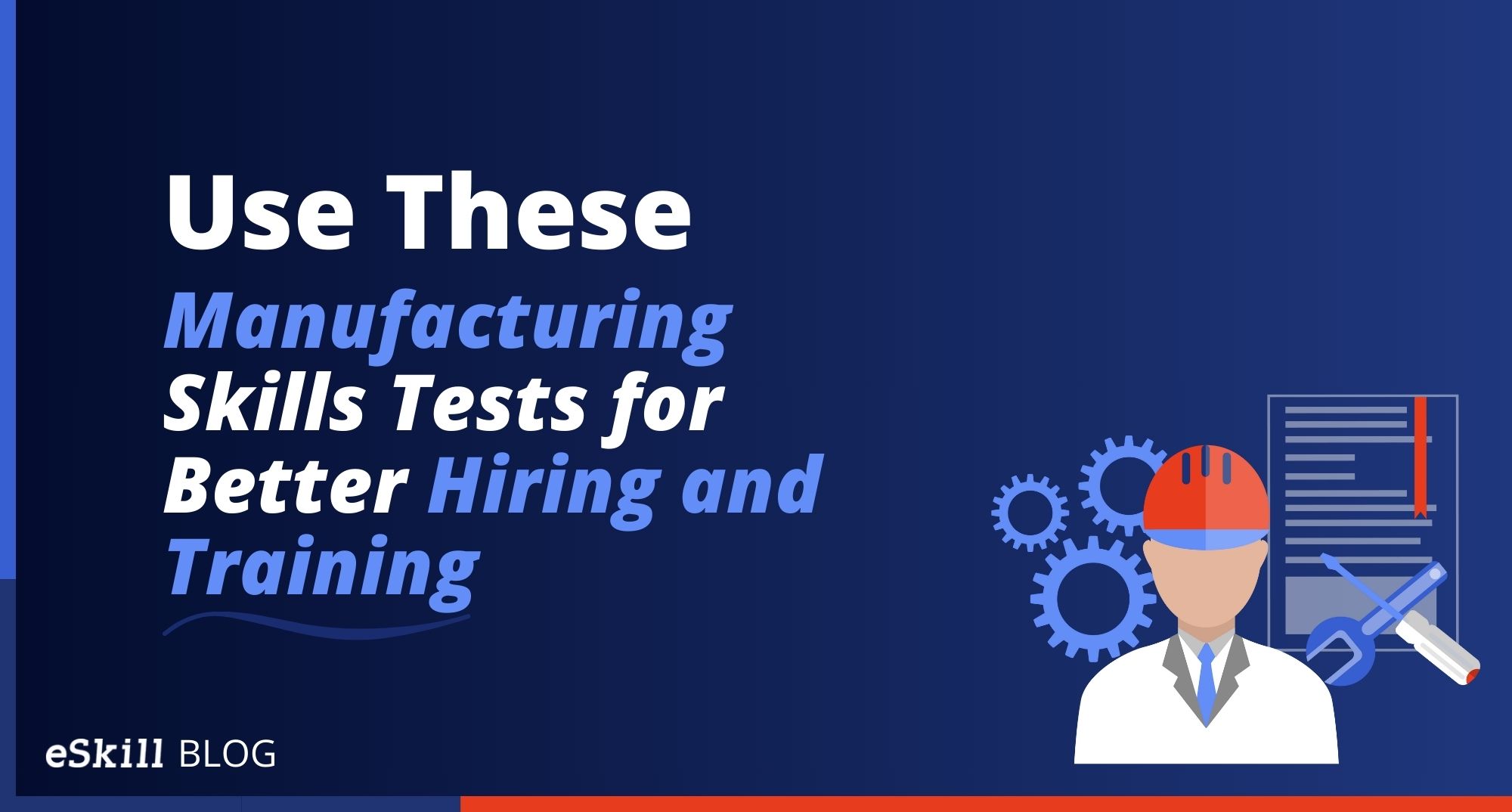It’s no secret that the manufacturing industry is an integral part of the US economy. Manufacturers account for over one-tenth (11.39%) of the US’s total economic output. By the end of 2018 alone, the manufacturing industry had a total production of $2.33 billion.
With the manufacturing industry being such a lucrative market, finding quality candidates to fill job vacancies should be easy. However, that is simply not the case.
If you are involved in your organization’s hiring process, you have experienced firsthand the challenges of identifying top applicants. Your hiring woes are largely due to the growing skills gap within the manufacturing industry.
The natural solution seems to involve building from within. Unfortunately, training and nurturing in-house talent is not significantly easier than hiring externally. This difficulty is compounded because many companies still develop their training protocols using outdated practices.
That’s where manufacturing skills assessment tests come into play. When used properly, these assessments can solve both training and hiring difficulties. They can make it easy to select the best candidates for open positions and evaluate the effectiveness of your in-house educational efforts.
Streamline the Hiring Process with Manufacturing Skills Tests
Before we highlight the benefits of manufacturing skills tests concerning training, let’s discuss how they can assist with pre-employment screening.
Your current hiring practices usually go like this: First, applicants submit their resumes for review. Your HR department must sift through dozens of emails, verify job experience, and perform other tasks to ensure that all information contained on the resumes is accurate. After that is complete, they will compile a list of the most appealing candidates and begin scheduling interviews.
There are two major issues with this approach. First, manually reviewing every resume and vetting the information is incredibly time-consuming. Second, a candidate can look great on paper but may not be the right fit for your team.
By using a combination of basic manufacturing skills tests and behavioral assessments, you can shorten the hiring process while simultaneously ensuring that candidates will mesh well with existing staff members.
Your HR department can distribute a skills assessment link to each interested candidate. They can inform the applicants that they must complete these assessments before being considered for an interview.
Your hiring team can view the results online when an assessment is completed. They can rapidly eliminate candidates who do not obtain requisite scores on the evaluations. This strategy will drastically reduce the number of resumes your team must review, thereby expediting the hiring process.
How a Manufacturing Skills Assessment Test Improves Training
If they do not use manufacturing skills assessment tests to guide training practices, organizations will likely rely on two methods to deploy education materials.
Some companies select training topics without the assistance of any hard data, which means that they essentially make an “educated guess.” Others rotate training courses and topics either quarterly, bi-annually, or annually. Unfortunately, both tactics can be extremely ineffective, which results in wasted time and resources.
By simply administering skills assessment tests, organizations can identify areas of need for their employees. You can also use these assessments post-training to demonstrate the efficacy of the course or program. If employees are not acquiring new skills or showing a measurable improvement after participating in a development program, your business must revamp its training materials.
The Basic Manufacturing Skills Tests You Should Be Using
There are several dozen basic manufacturing skills tests that you can implement into your training and hiring practices. The specific assessments you use will depend on what positions you attempt to fill. A few of the most common manufacturing-related skills assessments include:
Assembly Skills: The Assembly Skills assessment includes 20 simple select questions. It measures a candidate’s spatial aptitude and ability to assemble products, both important capacities for any manufacturing employee.
Mechanical Aptitude: The Mechanical Aptitude assessment is much more advanced than the Assembly Skills test. This assessment contains 40 questions of varying types. It covers dynamics, buckling of compressed columns, and structural analysis.
CNC Skills: The CNC Skills assessment covers skills such as CNC programming, fundamental concepts of CNC manufacturing, and the basic types of CNC systems. It includes 40 questions in total.
Blueprint Reading: Blueprint reading is an essential skill for engineering and high-level manufacturing staff. The Blueprint Reading assessment requires applicants to analyze various blueprints and use this information to answer simple select or true/false questions.
Upon completing any of the assessments listed above, candidates will receive a final cumulative score. The testing platform will also break down the applicant’s performance by topic. This feature provides additional insights to guide hiring decisions.
How to Start Your Testing Program
Request a demo to learn how you can start using manufacturing skills tests to streamline hiring and training at your company.

Get ademo.






